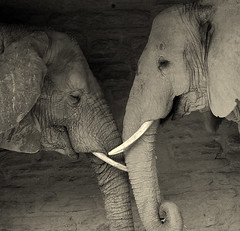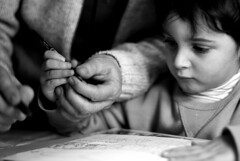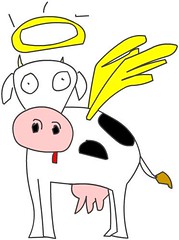I have to confess: secretly, I have Irish ancestry.
Okay, it’s not that big a secret. But for some reason, it’s not that big a deal, either—I also have Danish, German, French, English, Ulster Scots and other ancestry, and I don’t get a parade for that—and I also recognize that being (technically) Irish-American doesn’t mean I know jack squat about Ireland and its culture today.
Or, I didn’t until I wrote a book with an Irish protagonist. And no, not Irish like you and I are Irish—born-and-raised-in-Ireland-until-adulthood Irish. And surprisingly, although we allegedly speak the same language, that entailed the same amount of research as any other character from another culture might.
So here’s some of what I learned—a few St. Patrick’s Day myths for you.
Myth: St. Patrick’s is the quintessential Irish holiday
 Well, St. Patrick is a pivotal figure in Irish Catholic history, but not a whole lot is known for certain about him. He was a Briton taken into slavery in Ireland, escaped after six years and returned to Britain, then entered the Catholic church and returned to Ireland. He is the most famous of three patron saints of Ireland (although technically he’s never been canonized by a pope). Legend says he banished snakes from Ireland and used the shamrock to teach the concept of the Trinity.
Well, St. Patrick is a pivotal figure in Irish Catholic history, but not a whole lot is known for certain about him. He was a Briton taken into slavery in Ireland, escaped after six years and returned to Britain, then entered the Catholic church and returned to Ireland. He is the most famous of three patron saints of Ireland (although technically he’s never been canonized by a pope). Legend says he banished snakes from Ireland and used the shamrock to teach the concept of the Trinity.
March 17th is his feast day and has been celebrated as a day of holy obligation (and a day off from Lent) in Ireland for centuries. However, the first recorded St. Patrick’s Day parade was held in Boston (1737—the first parade in Ireland was nearly two hundred years later, after dozens of American cities had established parades of their own). St. Patrick’s Day is largely a holiday celebrated by the Irish Diaspora—people of Irish descent not living in Ireland. In fact, it wasn’t until the 1990s that Ireland began capitalizing on the tourism possibilities of the “traditional Irish holiday.”
Myth: Corned beef is the traditional Irish meal
Good news if you don’t care for the stuff: corned beef isn’t a traditional Irish meal. However, if you like it, the reason corned beef didn’t catch on in Ireland is doubly depressing: most Irish people couldn’t afford beef.
The tradition, like that of St. Patrick’s Day, is largely Irish-American: once they came to America, Irish people could afford beef and prepared it as they would have their cheaper meats back home. (I have no idea how people too poor to afford beef bought passage to America—details, details.)
A more traditional Irish meal would feature uncured bacon (Canadian bacon)—but do we really care?
Myth: In Ireland, everyone speaks “Gaelic.”
In Ireland, the vast majority of people call the traditional language “Irish.” While everyone in the Republic is required to learn Irish in school, few people actually speak it outside of school. (Think about it—when’s the last time you used your high school French? How good is it?)
There are a couple areas in Ireland where Irish is the native language: a few areas mostly on the west coast called the Gaeltacht (gale-tacht, with a ch like in Bach or loch). Population: 91,000, or about 2% of Ireland’s 4M+ people.
A fun fact: the Irish police force, the Garda Síochána (guard-a she-chòn-uh), requires at least a passing level of Irish proficiency for prospective officers (though they reassure applicants that it’s really not that big a deal).
Myth: Nice accent—are you from Scotland or running for the next Lucky Charms mascot?
Good try. You got one of the British Isles. Now, here are your study materials: Father Ted. Ballykissangel.
A couple hints: saying “I’m oyrish” means you’re probably not, “dinna, canna,” etc. and trilled r’s are waaay more common in Scotland that Ireland (though if you look really hard, you can find Irish accents that have one of those features, but not all).
(How do you get it right? The easiest way is to pick a specific place in Ireland for your character and find recordings of someone from there, or vice versa. And unless your character lived in Ireland past age 8 or so—even if their entire extended family is Irish—they probably have an American/Australian/Canadian/wherever they’re living accent. Linguistic phenomenon.)
Myth: Okay, then, Irish people speak English like the rest of us.
Uhhh yeah. They use many of the same words, but . . . well, let’s see if you can tell what this means:
“Did you hear that the scrubber and the wagon were plastered last night and ended up in a mill? It was deadly!”
—from The Feckin’ Book of Everything Irish
Oh, you did know that meant the woman of low sophistication and morals and the unattractive woman were drunk last night and ended up in a fight (it was awesome!)? That’s a lot of cheek, ya cute hoor—have you the knees to go with it?
Myth: The kilt is the best way to show off your Irish heritage
 Your knees, yes. Your Irish heritage, not so much. In Ireland, you’re most likely to see kilts on pipers. Really, the kilt is a Scottish tradition (and even then, the length of that tradition is disputed). Although there has been a bit of a movement to adopt it as Gaelic national dress (and what have you), the Irish kilt is mostly a phenomenon celebrated outside of Ireland.
Your knees, yes. Your Irish heritage, not so much. In Ireland, you’re most likely to see kilts on pipers. Really, the kilt is a Scottish tradition (and even then, the length of that tradition is disputed). Although there has been a bit of a movement to adopt it as Gaelic national dress (and what have you), the Irish kilt is mostly a phenomenon celebrated outside of Ireland.
(And in case you’re wondering, it’s not like everybody in Scotland’s wearing one, either. During the two years my husband lived there, he’d see someone about town in a kilt perhaps weekly.)
Myth: Erin go bragh is a Gaelic Irish phrase that means . . . uh . . .
Erin go bragh is the Anglicized version of . . . well, Irish speakers aren’t totally sure, but most seem to think it came from the Irish Éire go Brách, which literally means Ireland until eternity.
And, once again, it’s not that popular in Ireland. Sorry. It was used as a slogan a few centuries ago—is that better?
Myth: there’s nothing that’s really Irish about all this celebrating, is there?
Absolutely! In fact, St. Patrick’s Day is a great time to celebrate the way Irish culture has adapted during the Irish diaspora—because Ireland’s greatest export is its people.
And the other stuff that’s “really Irish”: potatoes, Catholicism, beer, Irish whiskey, shamrocks, the color green (and orange!), Brian Boru’s harp, Irish dance (though not necessarily Riverdance), Halloween (Oíche Shamhna (ee-chah how-nah)). Yes, it’s all cliché but still so true.
Check out Annette Lyon’s Word Nerd Wednesday to find some other Irish influences—on the English language. And my friend Stephanie Black actually lived in Ireland for a few years, and she’s posting about Irish chocolates and pictures (of Ireland, not the candy) today.
What do you think? Any surprises? Totally rethinking your national identity now?
 Their advice has pointed out weaknesses in my writing from phrasing to pacing—and not in the “oh, you suck” way, but in a “Hey, I think you can do this better” way. They’ve helped me see issues that I knew my story had—and find solutions to make my work stronger. They’re more than just fresh eyes to give me perspective—they’ve been a wealth of ideas and insight to improve my story on so many levels.
Their advice has pointed out weaknesses in my writing from phrasing to pacing—and not in the “oh, you suck” way, but in a “Hey, I think you can do this better” way. They’ve helped me see issues that I knew my story had—and find solutions to make my work stronger. They’re more than just fresh eyes to give me perspective—they’ve been a wealth of ideas and insight to improve my story on so many levels.



 Well, St. Patrick is a pivotal figure in Irish Catholic history, but not a whole lot is known for certain about him. He was a Briton taken into slavery in Ireland, escaped after six years and returned to Britain, then entered the Catholic church and returned to Ireland. He is the most famous of three patron saints of Ireland (although technically he’s never been canonized by a pope). Legend says he banished snakes from Ireland and used the shamrock to teach the concept of the Trinity.
Well, St. Patrick is a pivotal figure in Irish Catholic history, but not a whole lot is known for certain about him. He was a Briton taken into slavery in Ireland, escaped after six years and returned to Britain, then entered the Catholic church and returned to Ireland. He is the most famous of three patron saints of Ireland (although technically he’s never been canonized by a pope). Legend says he banished snakes from Ireland and used the shamrock to teach the concept of the Trinity. Your knees, yes. Your Irish heritage, not so much. In Ireland, you’re most likely to see kilts on pipers. Really, the kilt is a Scottish tradition (and even then, the length of that tradition is disputed). Although there has been a bit of a movement to adopt it as Gaelic national dress (and what have you), the Irish kilt is mostly a phenomenon celebrated outside of Ireland.
Your knees, yes. Your Irish heritage, not so much. In Ireland, you’re most likely to see kilts on pipers. Really, the kilt is a Scottish tradition (and even then, the length of that tradition is disputed). Although there has been a bit of a movement to adopt it as Gaelic national dress (and what have you), the Irish kilt is mostly a phenomenon celebrated outside of Ireland.  I shouldn’t be that surprised (I’ve only been online more than half my life) (in years, not hours) (though it may be getting close there 😉 )—but it really hit me how much the Internet is bringing us together. (Not to mention the fact that three of the four authors I was visiting I met through the Internet and that I saw half a dozen other people that I knew, knew by reputation or knew of their sites at these events.)
I shouldn’t be that surprised (I’ve only been online more than half my life) (in years, not hours) (though it may be getting close there 😉 )—but it really hit me how much the Internet is bringing us together. (Not to mention the fact that three of the four authors I was visiting I met through the Internet and that I saw half a dozen other people that I knew, knew by reputation or knew of their sites at these events.)